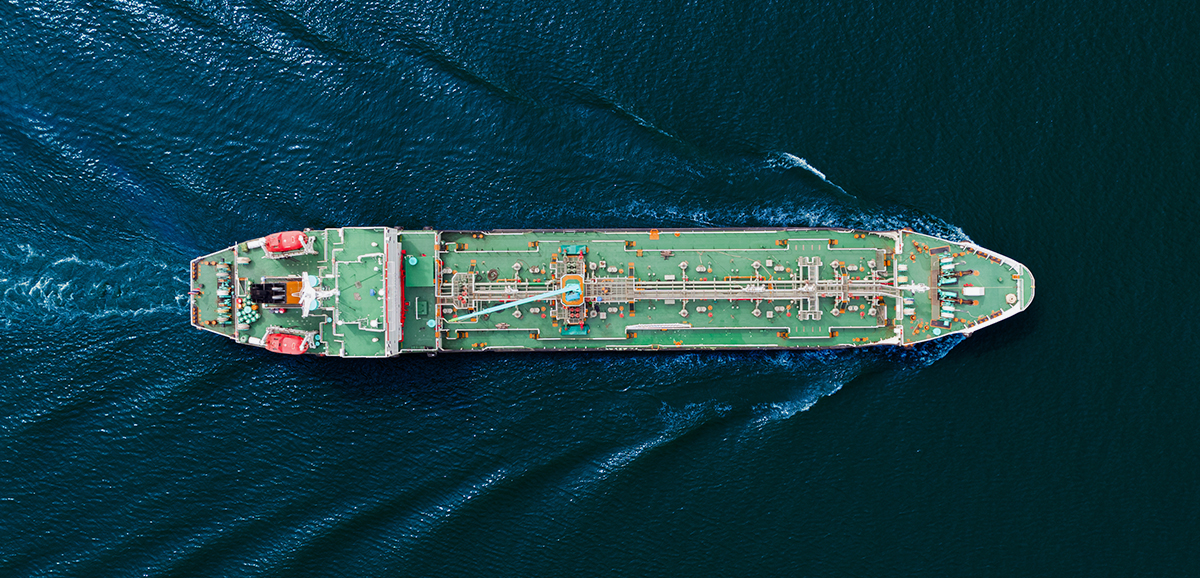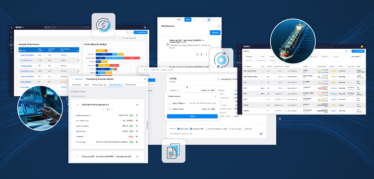As one of the world’s most volatile commodities, crude oil has a storied history of price fluctuations, from the recent bottoming out into negative values amid the global pandemic to a series of geopolitical shocks that caused prices to crash and surge throughout the last 60 years.
As commodity price continues to spike and plummet, it impacts the tanker market, which is based upon a derived demand. The most recent dip in crude oil values resulted in a spike in freight value as companies sought to capitalize on low prices and tankers were transformed into floating storage.
Maritime shipping remains the primary means of transporting crude oil to its various destinations around the globe. Whether a company specializes in producing and selling crude oil product or operating the tankers that move it across the ocean, crude oil’s outsized volatility demands a robust, market-linked solution for the commercial management of marine cargoes and freight.
Let’s take a closer look at how organizations on both sides of the marine contract can leverage digital technology to maximize their commercial success in any set of market conditions.
Condition 1: Market stability and strength.
While it is particularly susceptible to volatility, the crude oil commodity also has extended periods of stability and strength. For crude oil tonnage charterers and carriers, stable market conditions don’t eliminate the need for optimization. In fact, it is during times of stability that marine stakeholders are afforded the opportunity to focus on driving new efficiencies through their marine workflows. Whether it’s accelerating and improving nominations or chartering decisions, reducing costly demurrage through optimized berth rotations, deriving and sharing timely insights more efficiently through automated noon reports, or assessing real-time mark-to-market performance, stakeholders on both sides of the contract can continually improve the way they do business by leveraging the right commercial solution.
Stable conditions within the crude oil market may not test the limits of outdated processes and restrictive on-premises systems, but these can still be detrimental to the organization’s productivity, efficiency, and profitability as they do not afford their users the insight needed to improve into the future. It may be business as usual today, but the progressive modernization of the maritime space will outpace players who opt to not evolve their digitalization strategy.
Condition 2: Extreme price fluctuations.
Crude oil prices shift in real time, and these shifts can be both unanticipated and dramatic. Surging demand, erratic consumer behavior, geopolitical tensions, or global pandemics are just a few of the realities that can result in extreme peaks and plummets in crude oil prices, which can happen within hours. Depending upon causality, duration, and size, these fluctuations can have a significant impact on the demand for and price of tanker freight.
The speed of the crude oil market’s fluctuations stands in stark contrast to the pace of its voyages, which range anywhere from 10 to 50 days. A lot can happen to the price of the commodity onboard and tanker rates in a 50-day window. As a result, it is integral that all parties remain abreast of changing commodity prices and spot rates during the long journey so they can proactively adapt to hedge risk and maximize cargo or voyage profitability. The right commercial solution can feature powerful, index-linked workspaces for exposure management, automate complex nominations or chartering calculations, and form deep integrations across your corporate system landscape —all of which empower stakeholders to make agile commercial decisions in the larger context of fluctuating markets.
Condition 3: New sanctions or restrictions.
Because of its political capital, crude oil can be at the heart of changing geopolitical realities. In fact, over the last half-century, its volatile history has often been tied to international conflict. As nations find themselves embroiled in opposing legislature or national policies, crude oil producers and consumers can find themselves on sanctions lists or under strict embargo. In some cases, new sanctions or restrictions can arise mid-voyage, forcing marine professionals to quickly adjust the course lest face costly consequences.
To operate without knowledge of real-time geopolitical sanctions or embargoes could lead to costly sanction fees or profit sinking seizures. A highly capable commercial solution, however, can support integrations with sanctions lists, empowering commodities producers, traders, and shippers to observe and manage legal risk in the voyage planning process and throughout the long journey at sea.
Condition 4: Unanticipated office shut-down.
As the world learned with COVID-19, global, national, and local catastrophes like pandemics or natural disasters can force entire offices to work in remote environments indefinitely. Crude oil’s inherent volatility adds extra layers of exposure to forced remote work situations, leaving ill-prepared stakeholders to grapple with adapting their workflow as the market reacts to the crisis around them. In moments like these, it is crucial for business continuity that mission-critical systems are dynamic and flexible.
A cloud-based commercial solution inherently rids remote workers of the cumbersome middleware needed to access an on-premise system, allowing them to maintain secure access and agility from virtually anywhere. This ensures team members have the continuity and tools they need to safeguard cargo or voyage profits amid shifting market realities.
Volatility Meets Commercial Agility with the Veson IMOS Platform (VIP)
The Veson IMOS Platform (VIP) is a dynamic, cloud-based platform for the commercial management of marine cargo and fleets that has been built for the unique complexities of the crude oil market. With its index-linked workspaces, real-time P&L, automated processes, and powerful integrations with CTRM/ETRM, VIP has all of the features crude oil tonnage charterers, commodities traders, owners, and operators need to not only enhance their business in moments of stability but also to confidently navigate in the face of adversity. To embrace a modern platform like VIP is to ensure your organization has the commercial agility it needs to maximize success in any set of conditions.



 Jesse Dilanni
Jesse Dilanni
 Russ Hubbard
Russ Hubbard
 Josh Luby
Josh Luby